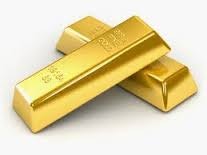Marc “Dr. Doom” Faber has amassed quite the following in the financial world given his outspoken nature and uncanny ability to time the markets. This year has seen Faber urge investors to store their gold overseas and a warning that no matter who holds the Fed chair next, he will continue to print loads of money. Faber’s most recent prediction calls for a drop in the markets, as he has explicitly stated his bearishness for the global economy for some time now [for more economic news and analysis subscribe to our free newsletter].
“I think here we’re going to go down 20 percent from the recent top at 1,470. The technical position of the market is poor and the corporate earnings are worsening. And I believe that if the statistics were precise – which they aren’t – (…) I think there’s hardly any growth” said Faber. Luckily for investors, Faber also stated what he thinks will be a good investment for the coming market dip; farmland. He called farmland one of the most important investments you will ever make, and the math weighs heavily in his favor.
Historical data reveals the appeal of this timeless hard asset; between 1987 and 2004, farmland prices averaged annual increases of 4.8%. What’s even more exciting is that prices have gone onto appreciate even more rapidly in recent years thanks to record-low interest rates and steadily growing demand for commodities. Farmland prices have averaged annuals gains of 15% between 2004 and 2008, showcasing the ability of this asset class to deliver uncorrelated returns to broad equity markets [see also Checking In On Marc Faber’s 100% Certainty of Another Recession].
Experts have expressed their concerns that land value increases of this magnitude are unsustainable, although they have also acknowledged that increasing food demand from all over the globe is a key factor that would prevent a major collapse. It is also worth noting that investing in farmland is a relatively difficult task, as many companies who own farmland also have a fair amount of other operations impacting bottom line returns.
For those who look to follow Faber’s advice, there are a few private funds that specifically buy farmland out there, but there are also indirect options that may be a bit less of a hassle. The Market Vectors Agribusiness (NYSEARCA:MOO) invests in global agribusiness firms who will see the benefits of their land increasing in value. Investors can also use the Rogers Intl Commodity Agric ETN (RJA), which invests in various agricultural commodities futures. As farmland continues to surge it stands to reason that its underlying outputs will do the same, making RJA an enticing buy.
This article was originally written by Jared Cummans, and posted on CommodityHQ.






